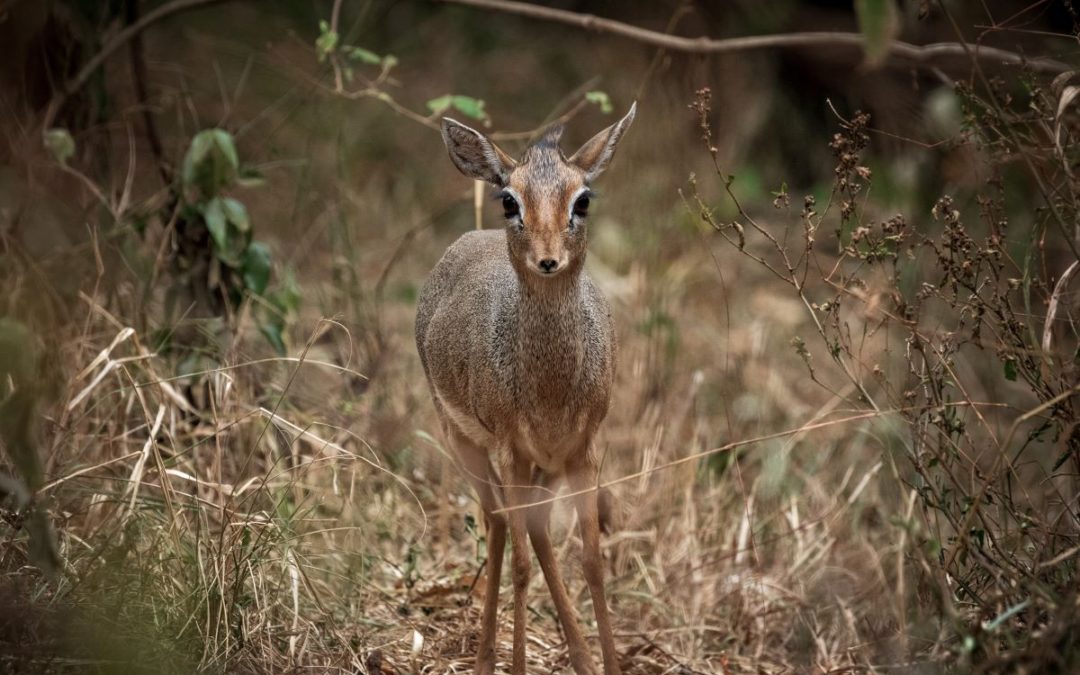Biodiversity loss, along with its twin crisis of climate change, can oftentimes seem too overwhelming to solve on a generational level, much less on an individual one. This is especially true considering the vast majority of pollution and habitat degradation is caused on a massive scale by major corporations. How can the actions of any one person even begin to counteract all the damage done over a century of irresponsible production practices?
In addition to the staggering scope of the problem, there is also the issue of psychological distance. It’s very easy for us to think, “Yes, it’s sad that the polar bears are hungry, but they’re over there and I’m over here,” or, “I’m not going to upend my daily habits so that my great-great-grandchild might live on a planet that’s one degree cooler.” But this is the problem with a cultural narrative that encourages people to psychologically separate themselves. We separate ourselves from the planet we live on, we separate ourselves from the plants and animals that live on the planet with us, and we even separate ourselves from other people who are even the slightest bit different from us. This false narrative causes us to forget or ignore the fact that we are all part of the same nature, and our wellbeing is interdependent.
It may be true that corporations and governments need to be involved if we hope to achieve any substantial change, but it is up to us as individuals to demand the necessary reforms from these larger institutions. Corporations and governments react to the trends of culture and the attitudes of society, meaning a bottom-up approach is crucial to any significant change. Human nature is highly observational and empathetic, and this affects our behavioral patterns. So if your friend starts using a compost pile, and then you notice more of your friends and community members also using compost piles, you are then much more likely to start using one yourself. Before long, anyone who doesn’t have a compost pile is considered to be behind the times, lazy, or even a jerk. This is how bottom-up change works – it starts on an individual level.
That’s why OneNature is working to generate a Wellbeing Pledge. We are putting together an extensive list of things individuals can do to help protect wellbeing for all beings. Our team at OneNature wants to hear from you about what you do (or something that you think you could do) to promote wellbeing and protect animals and the planet. You can find some examples of simple ways to improve the world for animals, the environment, and people (including yourself) in our recent Buzzfeed post here. Below is a list of examples from the OneNature family for further inspiration.
Beth Allgood, Founder and President: Beth is working towards caring for her property in a way that departs from the conventional suburban lawn. She plants a variety of wildflowers for the benefit of pollinators, and does not use any chemical fertilizers, pesticides, or insecticides. Yards like Beth’s are not only good for biodiversity, they are also healthier for Beth and her family, community members, and neighborhood pets. On top of that, they benefit the climate and promote an equitable society. Traditional lawn maintenance is destructive to the environment because of the toxic chemicals used and the excessive amount of water wasted.
Kate Wall, Board Member: Kate tries to be mindful about all of her consumer choices. By only buying vegan, cruelty-free, and organic materials – whether food, clothing, or home goods – and by sourcing pre-loved items and supporting independent businesses whenever possible, she strives to reduce suffering, promote social equity, and improve health and wellbeing along supply chains. Like Beth, Kate maintains a pesticide-free native garden, and loves watching pollinators and wildlife enjoying themselves in her backyard habitat.
Taylor Mann, Program Associate: Taylor is committed to buying cruelty-free household and beauty products. The label “cruelty-free” is usually confirmed by PETA, Leaping Bunny, or Logical Harmony. Taylor also works to avoid using single-use plastics in her daily life. She understands that even recycled plastics tend to eventually end up in landfills or the environment, which is why it’s better to seek reusable alternatives.
Daniel Ange, Research Fellow: Daniel is on a mission to ensure a reduction in the rate of deforestation in his country of Cameroon. To this end, he makes sure that all the products he uses are deforestation-free. He also has a garden at home with various plants to promote pollination and biodiversity.
Alison Davis, Communications Fellow: Alison strives to purchase makeup and bathroom products that are exclusively cruelty-free, vegan, eco-friendly, and nontoxic. Her favorite certification organizations are the Leaping Bunny Program and the Environmental Working Group. She was excited to learn earlier this year that China no longer requires animal testing on imported cosmetics, allowing many brands to sell in China while still embracing the “cruelty-free” label.
What are your wellbeing and animal welfare tips? Here are the ways you can provide feedback:
– Email us at info@onenatureglobal.org
– Comment on the Buzzfeed article
– Comment or PM us on any of our social media pages (Facebook, Twitter, Instagram, or LinkedIn)
We look forward to reading your responses!
